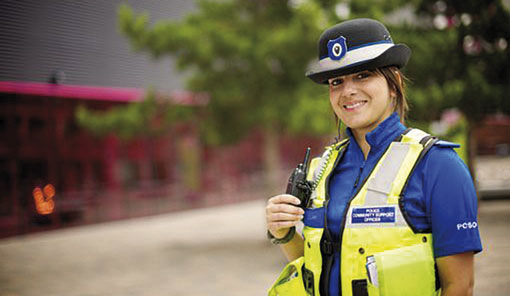2 Introduction to powers applicable to PCSOs
Individual discretion plays a significant part in policing. It is individual police officers and PCSOs who will decide if it is necessary to, for example, detain someone, seize alcohol or tobacco from someone underage, or issue a fixed penalty notice (FPN). In order for PCSOs and police officers to deal with situations fairly, there is legislation in place that ensures this.
PCSOs are employed directly by the local police authority they work for and some of their powers can be amended if need be by the local chief officer (College of Policing, 2019). Therefore, a PCSO in one police area may well have different powers to PCSOs in another police area. PCSO powers have been updated since the introduction of the Police Reform Act 2002, with specific powers conferred (these conferred powers are also applied at the discretion of the Chief Constable). PCSOs have been given additional discretionary powers, should the chief officer of their police area deem them necessary. The additional powers include, among others:
- seizing property
- issuing fixed penalty notices for parking in restricted areas outside schools
- cycling without lights and carrying a passenger on a cycle.
Now complete the following activity, in which you will consider the powers that you think PCSOs need in order to do their job.
Activity 1 A day in the life of a PCSO
Based upon the knowledge you’ve gained so far, and from your own observations of PCSOs where you live or work, create a list of the main powers you think they need to carry out their role. Are there any that police officers have that PCSOs do not, or vice-versa? You do not need to include information on legislation; just create a practical overview of which powers would help them do their job on a day-to-day basis. Type your answer in the text box below.
Discussion
The powers conferred on PCSOs are quite wide ranging and certainly go beyond what many people understand them to be able to do (College of Policing, 2019). Perhaps one of the main differences in the powers of a PCSO compared to a police officer is the power to arrest. A PCSO cannot arrest anyone using the powers given to them, although they do retain citizen powers of arrest that are found under both common law and Section 24A of the Police and Criminal Evidence Act 1984. If the power is conferred upon them by a Chief Constable, a PCSO can detain a person for up to 30 minutes to allow for a police officer to arrive who might arrest the person. If the suspect does not comply with this, then they commit a further offence. This varies from one police area to another. For example, at the time of writing this course a PCSO in North Yorkshire can do this whereas a PCSO working in Lancashire police area cannot.

